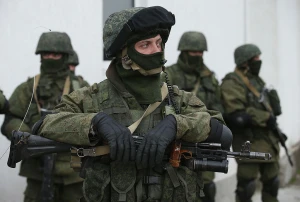
Kremlin deliberately holds prisoner exchange on the day partial mobilization is announced - ISW
Russia tries to downplay the value of the exchange of prisoners with Ukraine by conducting the exchange on the day of the announcement of partial mobilization. However, the Kremlin's tough approach to mobilization may cause public anger and distrust.
The Institute for the Study of War (ISW) reports.
"Probably, the Kremlin tried to downplay the prisoner exchange with Ukraine, which is very unpopular among Russian nationalists and opinion bloggers, by carrying out the exchange on the same day that Putin announced a partial mobilization," experts say.
Russian tabloids criticized the exchange and asked whether the Kremlin had abandoned the "denazification" of Ukraine, one of the stated goals of the Russian invasion, according to the Institute's report.
Analysts note that Russian authorities openly do not comply with the promised conditions of partial mobilization. Kremlin quotas are likely to force local authorities to mobilize men regardless of their military status.
Nowadays, Russia serves summonses even to anti-mobilization protesters; the morale of such soldiers will be catastrophically low. There is a high probability that a disproportionate number of men will try to recruit among ethnic minorities (those Buryats and Dagestanis who were actively recruited for "short-term contracts", which Putin has now made permanent), as well as among immigrants, for example from Central Asia.
By the way, it is impossible to check how much they actually intend to mobilize. Shoigu spoke of 300,000, but the number of a million people leaked to the opposition press.
"The Kremlin's hard-line approach to partial mobilization is likely to fuel domestic outrage over a measure that would be unpopular even if implemented without the hard-line approach seen over the past 24 hours," the report said.
According to experts, the announcement of partial mobilization and flagrant disregard for even the parameters of mobilization dictated by the government may alienate interested sections of the Russian public, who were previously more tolerant of Russia's invasion of Ukraine, which affected their personal interests less.
Other key findings of ISW
The IAEA negotiations around the Zaporizhzhia NPP are unlikely to significantly improve the situation at the NPP and may provide an opportunity for Russian troops to stage provocations.
It is likely that on September 22, Ukrainian troops continued limited counteroffensive actions along the border of the Kharkiv-Luhansk region and advanced on Lyman.
On September 22 it was confirmed that Ukrainian forces conduct a blocking operation in the Kherson region.
On September 22, Russian forces conducted limited ground strikes along the front line in the Donetsk region.
On September 22, Russian forces did not conduct confirmed ground attacks west of Gulyaipole and continued conventional strikes throughout the western part of the Zaporizhzhia region.
Russian occupying forces hastily set the conditions for holding fictitious referendums on annexation on September 23-27 throughout the territory of occupied Ukraine.
Russian officials created electoral divisions in some parts of Russia, ostensibly so that displaced (in many cases abducted) Ukrainian residents of the occupied territories could "vote."
Russian occupation officials in Ukraine likely expect to be forced to provide personnel to meet Russian regional mobilization quotas, after the Kremlin illegally annexes the occupied Ukrainian territories.
- News














































